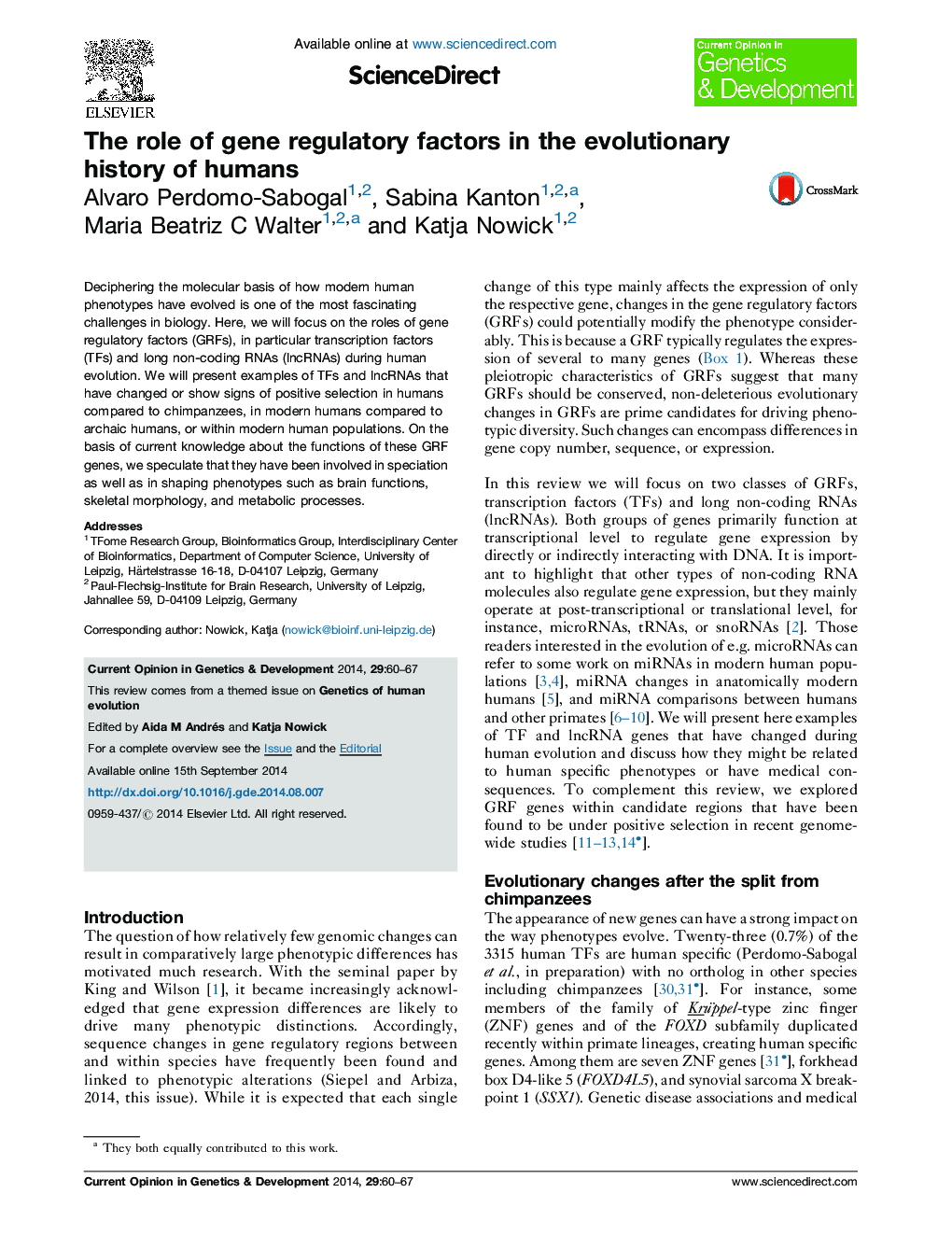| Article ID | Journal | Published Year | Pages | File Type |
|---|---|---|---|---|
| 5893389 | Current Opinion in Genetics & Development | 2014 | 8 Pages |
Abstract
Deciphering the molecular basis of how modern human phenotypes have evolved is one of the most fascinating challenges in biology. Here, we will focus on the roles of gene regulatory factors (GRFs), in particular transcription factors (TFs) and long non-coding RNAs (lncRNAs) during human evolution. We will present examples of TFs and lncRNAs that have changed or show signs of positive selection in humans compared to chimpanzees, in modern humans compared to archaic humans, or within modern human populations. On the basis of current knowledge about the functions of these GRF genes, we speculate that they have been involved in speciation as well as in shaping phenotypes such as brain functions, skeletal morphology, and metabolic processes.
Related Topics
Life Sciences
Biochemistry, Genetics and Molecular Biology
Developmental Biology
Authors
Alvaro Perdomo-Sabogal, Sabina Kanton, Maria Beatriz C. Walter, Katja Nowick,
